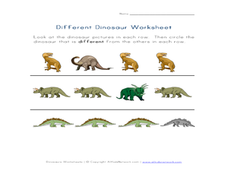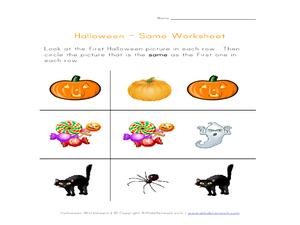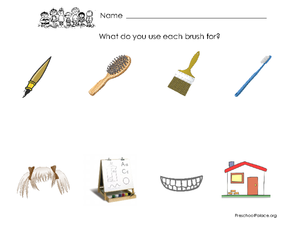Curated OER
In Daddy’s Arms I Am Tall Teacher’s Guide
Learners read the book I Am Tall and complete several reading response activities relating to the poems in the book. In this reading response lesson plan, students focus on the subject of fathers and make speculations about what the...
Curated OER
The Water Nearby
Learners explore water located near where they live. In this map skills maritime lesson, students use Google Maps to find their school and the body of water closest to them. Learners research the body of water and answer questions about it.
Curated OER
Dorothea Lange and the Relocation of Japanese Americans
Students consider the relocation of Japanese Americans during World War II. In this Japanese relocation lesson plan, students examine photographs by Dorothea Lange, the "Pledge of Allegiance," and a US government flyer from 1942. They...
Curated OER
Historical Witness - social Messaging
Students examine and develop artwork that shows women's roles during different eras. In this women's role lesson, students look at artwork that shows women at work during the mid-nineteenth to early twentieth century. They design a mixed...
Curated OER
Seeing Art in Historical Context: An Activity to Promote Visual Literacy
Students consider works of art in their historical context. In this art in historical context activity, students are encouraged to think about and record their prior knowledge of the historical period and to make inferences about the...
Curated OER
Visual Patterns in Tessellations Worksheet
In this tessellations learning exercise, students name 3 items that have tessellating patterns. Students then use the interactive tessellating program found at www.shodor.org to draw and answer 5 questions about their tessellations.
Curated OER
Allegory in Painting
Students define allegory and discuss its use in visual arts. They identify and explain allegorical themes in a number of images.
Curated OER
Coming to America
Students present tableaus showing scenes from The Memory Coat, a book about immigration. For this tableau lesson, students examine the cover of the book and make predictions about what is happening and who the people are. They create...
Curated OER
Numeric Patterns
For this numeric and visual patterns worksheet, students continue the numeric and visual patterns given to them. Students are given 16 patterns.
Curated OER
Easter Picture Matching Worksheet
In this Easter picture matching worksheet, students look closely at the 6 pictures in two columns, then draw a line to match the one on the left with the one on the right.
Curated OER
Things That are Empty
For this visual discrimination worksheet, students examine 12 pictures and identify whether the container in each picture is full or empty.
Curated OER
My Body Worksheet
In ths body parts worksheet, students examine a picture and use the body parts listed in the word bank to label 12 body parts in the picture.
Curated OER
Full or Empty?
In this visual discrimination worksheet, students examine 4 pictures and determine whether the pictures show something that is full or empty.
Curated OER
Look at the Picture and Answer the Questions
In this counting skills worksheet, learners examine the picture of an apple tree and then respond to 4 questions that require counting.
Curated OER
Visual Discrimination
For this number sense worksheet, learners examine 2 pictures and identify how old they think the people in the pictures are. Students then draw pictures of how they think they will look at 100.
Curated OER
Identify The Shape of Scale
In this online interactive visual discrimination worksheet, students respond to 1 multiple choice question that requires them to determine the name of the shape pictured.
Curated OER
Different Dinosaur Worksheet
In this visual discrimination worksheet, students examine 3 sets of pictured dinosaurs and identify the dinosaurs in each set that are different than the others.
Curated OER
Stars Planets Space Workheet
In this visual discrimination worksheet, students examine 8 space-related pictures and determine the number of different types of shapes pictured.
Curated OER
Halloween Picture Matching
In this visual discrimination instructional activity, learners examine 10 Halloween-related pictures and match the appropriate pairs to one another.
Curated OER
Left-Middle-Right
In this shape recognition worksheet, students respond to 3 questions that require them to record the name of the shapes located on the right, the left, and in the middle.
Curated OER
Halloween – Same Worksheet
In this visual discrimination worksheet, students examine 3 sets of 3 Halloween pictures each and identify the 2 picture in each set that are alike.
Curated OER
Different Frankenstein
In this visual discrimination activity, students examine 6 Frankenstein pictures and identify the Frankensteins that are different than the others.
Curated OER
Brush Matching
In this visual discrimination worksheet, students match the paintbrushes, hairbrush, and toothbrush to the pictures that match their intended uses.
Curated OER
Letter Recognition: Letter W
In this letter W recognition worksheet, students examine 2 groups of letters and identify uppercase and lowercase Ws in the groups. Students also trace and independently write the uppercase and lowercase letters.

























